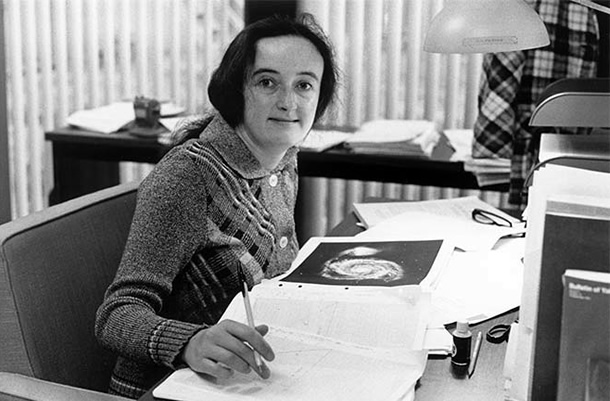
Beatrice Tinsley (née Hill) was a New Zealand astronomer and cosmologist who made remarkable discoveries about the evolution of galaxies. She was English-born but raised in New Plymouth, and later studied at Canterbury University College. In 1963 Beatrice and her husband, also a physicist, left for the United States, where academic opportunities were greater.
Beatrice completed her PhD thesis, ‘Evolution of galaxies and its significance for cosmology’, through the University of Texas, Austin in 1966. She was the first woman to study in the astronomy department. Her research on the evolution of galaxies and changes in star populations was influential. She was the first person to develop a method of calculating star formation rates and the chemical evolution of galaxies, demonstrating the behaviour of galaxies over time. Before her research, astronomers believed galaxies were static or changed very little over time.
In 1978 Tinsley became the first woman to be appointed as Professor of Astronomy at Yale University. She published around 100 research papers during her 14-year academic career and was the first female recipient of the Annie Jump Cannon Award in Astronomy (1974).
Beatrice died on 23 March 1981 at the age of 40 after a battle with melanoma. Following her death, her scientific contributions have become more widely-known and celebrated. The Beatrice M. Tinsley Prize, established by the American Astronomical Society in 1986, recognises outstanding research contributions to astronomy of an exceptionally creative or innovative character.
External links
How to cite this page
'Beatrice Tinsley made professor of astronomy at Yale', URL: https://nzhistory.govt.nz/page/beatrice-tinsley-made-professor-astronomy-yale, (Ministry for Culture and Heritage), updated 18-Mar-2020


Community contributions